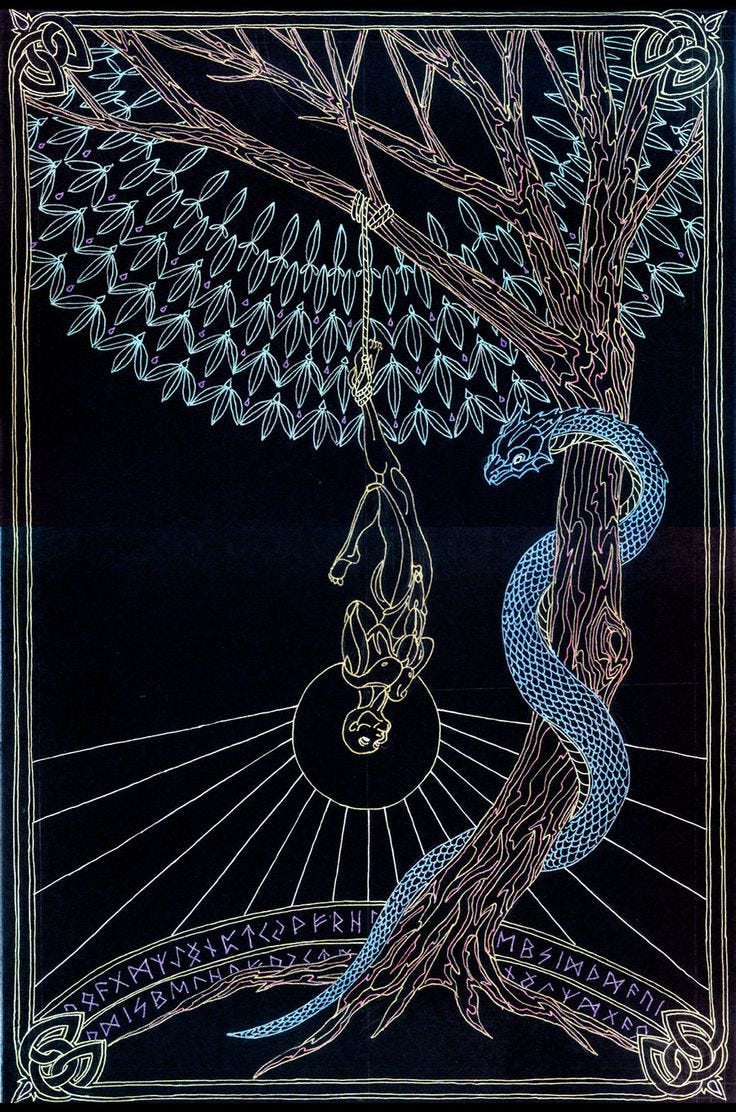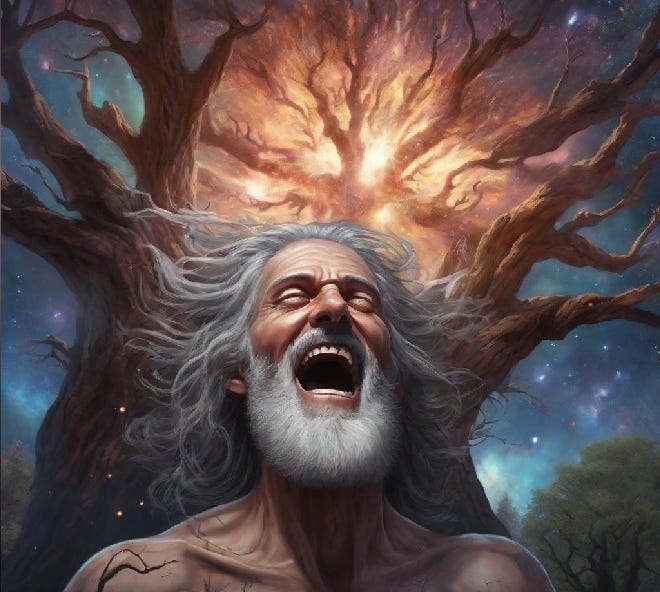Typically, most people do not understand the true meaning of sacrifice unless someone or something else is doing it. The most well known type of sacrifice people are familiar with is the sacrifice of Jesus on the cross from the Biblical narrative, but that kind of sacrifice does not encapsulate the true meaning of sacrifice.
Due to the West’s unconscious Abrahamic mindset, most Pagans beginning their journey misunderstand the god Odin. Odin, the god of enlightenment, storms, war, shamanism, and many other things, sacrificed Himself on Yggdrasil, the cosmic world tree and achieved His own “enlightenment.” His sacrifice is often compared to Jesus' sacrifice on the cross but there is a huge difference between the two.
Odin, or Woden as He is known to the English, is He who consists of pure ecstasy. Not ecstasy in any superficial sense, but rather, the pure, divine, “shamanic” ecstasy of one who is fully consumed by enlightenment. The suffix “en” means “made of” or “consisting of”. Thus, Wod-en or Óð-inn is He who consists of Óðr - "divine madness”, stemming from the Proto-Germanic *wōðaz - “possessed, inspired, delirious, raging.”
In the mythology, it alludes to the idea that before Odin’s self-sacrifice, He was not, in fact, “Odin.” Whoever, or whatever Odin was as an entity prior to His self-sacrifice completely lost His former identity to become Odin - and there is a lesson to be learned in that. Further, the name of the world tree itself, “Yggdrasil”, means “Yggr’s steed”. Yggr is another one of the names of Odin which means “terrifying”, and is in fact the root of the word “ugly.” In fact, many of us still unknowingly express this in the way we think and feel about things today, whereby we express “ugh” as a reaction to something unsettling. Therefore, Yggdrasil in of itself can be said to be “the horse of the Terrifying One.”
Interestingly, the Vedic deity Shiva likewise shares this name with Odin in the form of “Ugra” - “Fierce One.” The words Ugra and Raudra give almost the same meaning as “Terrible.”
What is terrifying about Odin? Some may call Him a god of war and a god of rage, and there is some truth to that. However, His rage can not best be described in the sense of vengeful or malicious rage when meditating upon His higher spiritual qualities, which is a rather superficial understanding of just who He is. Odin, when completely engulfed in His own awareness, what we’d call “divine madness”, appears terrifying to us, but not because Odin is trying to frighten anyone.
Why would this terrify us?
“I know that I hung on that windy tree
nine long nights,
wounded with a spear, sacrificed to Odin,
myself to myself,
on that tree of which no man knows from where its roots run.
No bread did they give me nor a drink from a horn,
downwards I peered;
I took up the runes,
screaming I took them,
then I fell back from there.”
-Óðin, Hávamál 139-140.
Keep reading with a 7-day free trial
Subscribe to Heryos Chad to keep reading this post and get 7 days of free access to the full post archives.





